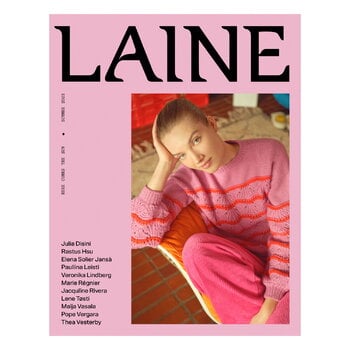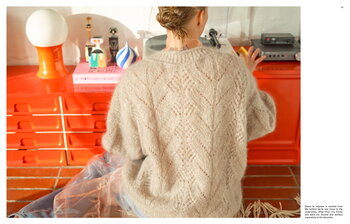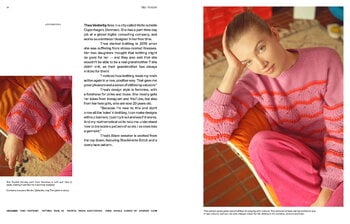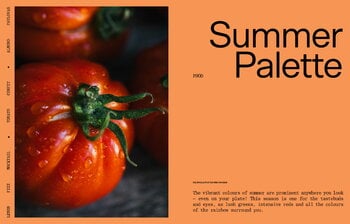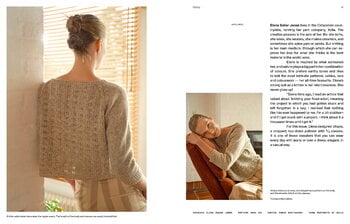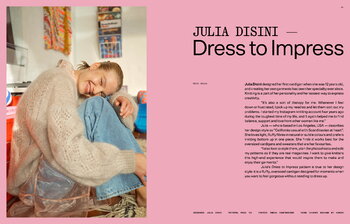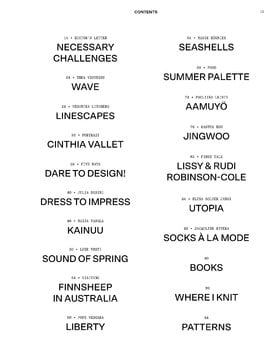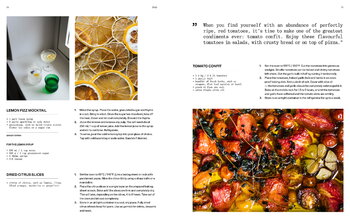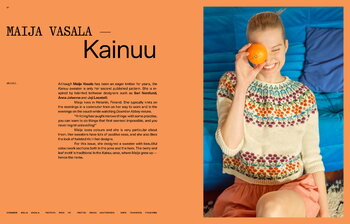Laine magazine contains knitting tips, interesting articles, and stories from the world of wool, inspiring interviews, and seasonal recipes. The magazine is published three times per year, in both English and Finnish.
The 17th issue of the magazine (summer 2023) transports the reader to carefree summer days. Although it is a summer issue, you're sure to find plenty of inspiration on its colourful pages all year round. How do these sound, for example: a sweater in pink and red, or wool socks decorated with knitted ice cream cones? Laine magazine issue 17 features 11 knitting patterns as well as stories about an Australian sheep farmer, a French plush toy designer and a Finnish knitter who loves to knit outdoors.
Issue 17 — aptly named Here Comes the Sun — feels like the first tender rays of sun after a long winter. The inspiring summer knits and fun, quirky photos create a happy, relaxed mix with a subtle vintage feel.
Designers featured in this issue: Julia Disini, Rastus Hsu, Elena Solier Jansà, Pauliina Leisti, Veronika Lindberg, Marie Régnier, Jacquline Rivera, Lene Tøsti, Maija Vasala, Pope Vergara and Thea Vesterby.
